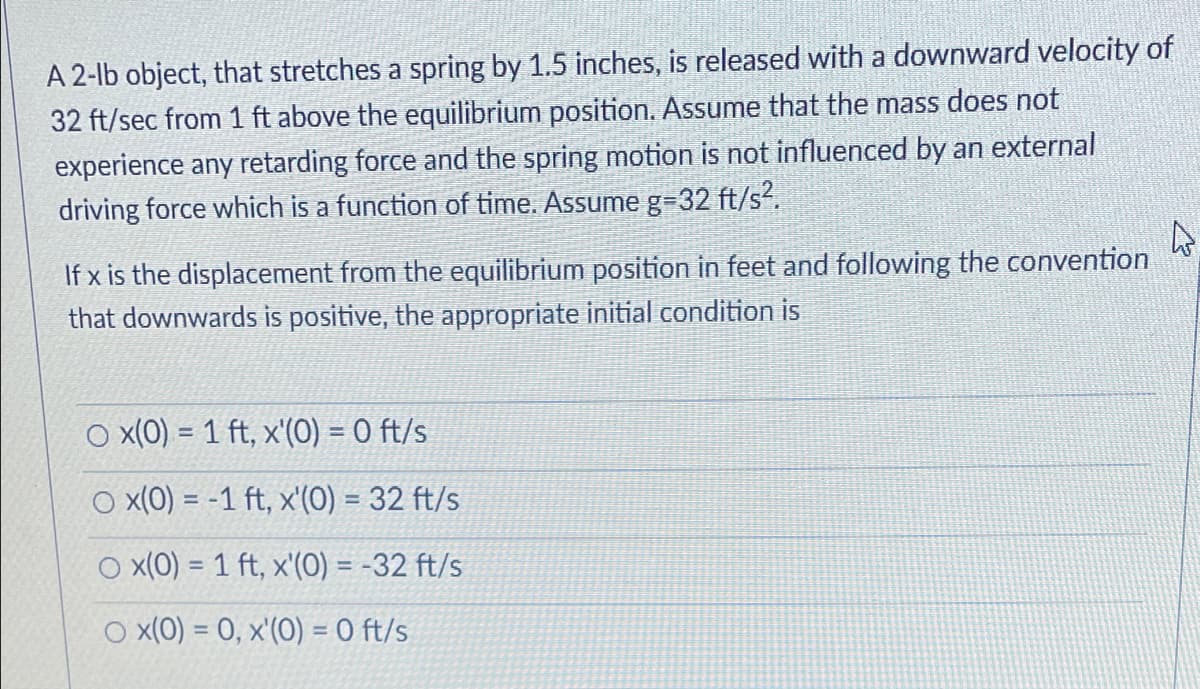A 2-lb object, that stretches a spring by 1.5 inches, is released with a downward velocity of 32 ft/sec from 1 ft above the equilibrium position. Assume that the mass does not experience any retarding force and the spring motion is not influenced by an external driving force which is a function of time. Assume g=32 ft/s?. If x is the displacement from the equilibrium position in feet and following the convention that downwards is positive, the appropriate initial condition is O x(0) = 1 ft, x'(O) = 0 ft/s O x(0) = -1 ft, x'(0) = 32 ft/s O x(0) = 1 ft, x'(0) = -32 ft/s O x(0) = 0, x'(O) = 0 ft/s
Simple harmonic motion
Simple harmonic motion is a type of periodic motion in which an object undergoes oscillatory motion. The restoring force exerted by the object exhibiting SHM is proportional to the displacement from the equilibrium position. The force is directed towards the mean position. We see many examples of SHM around us, common ones are the motion of a pendulum, spring and vibration of strings in musical instruments, and so on.
Simple Pendulum
A simple pendulum comprises a heavy mass (called bob) attached to one end of the weightless and flexible string.
Oscillation
In Physics, oscillation means a repetitive motion that happens in a variation with respect to time. There is usually a central value, where the object would be at rest. Additionally, there are two or more positions between which the repetitive motion takes place. In mathematics, oscillations can also be described as vibrations. The most common examples of oscillation that is seen in daily lives include the alternating current (AC) or the motion of a moving pendulum.

Step by step
Solved in 2 steps









